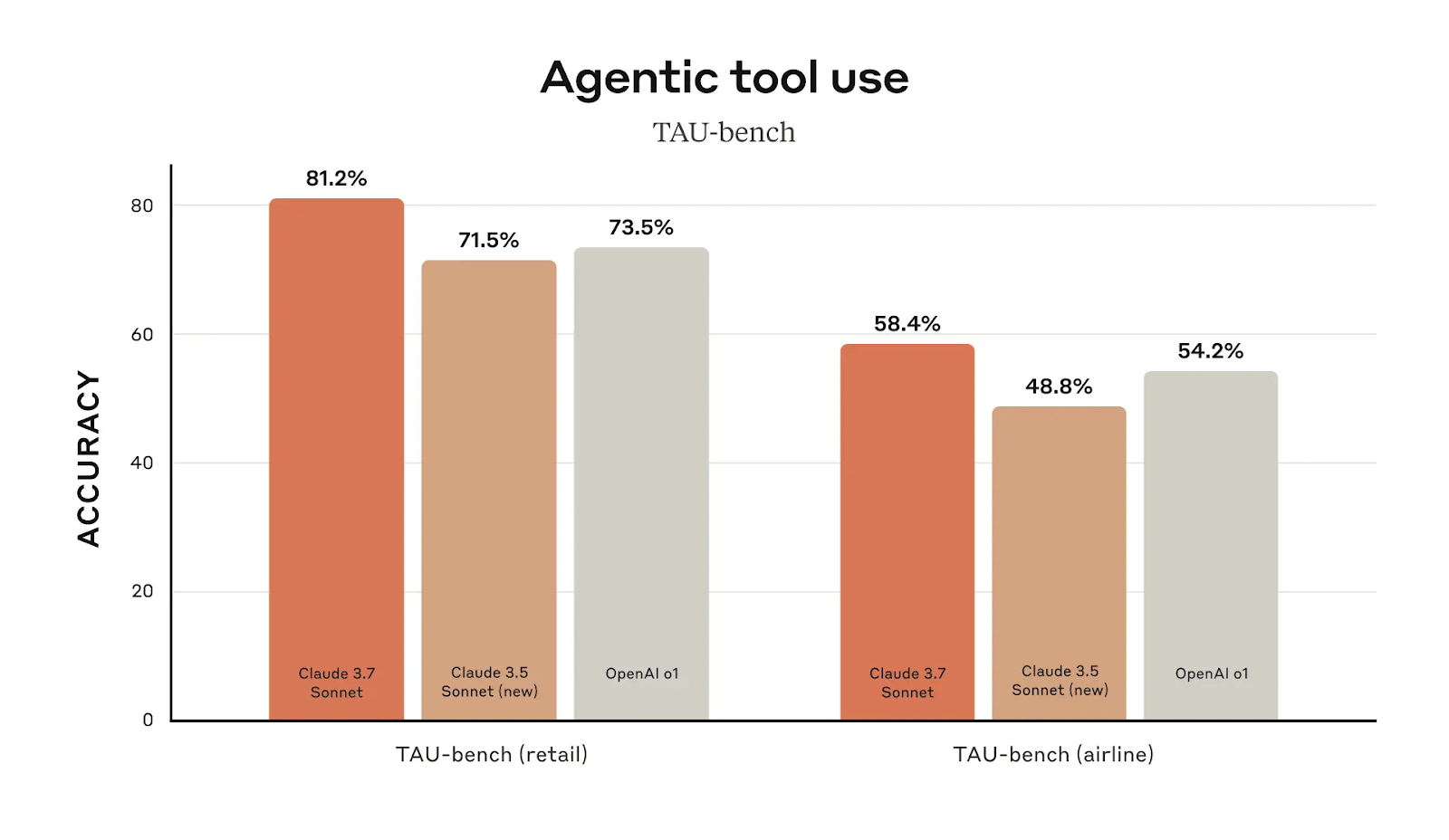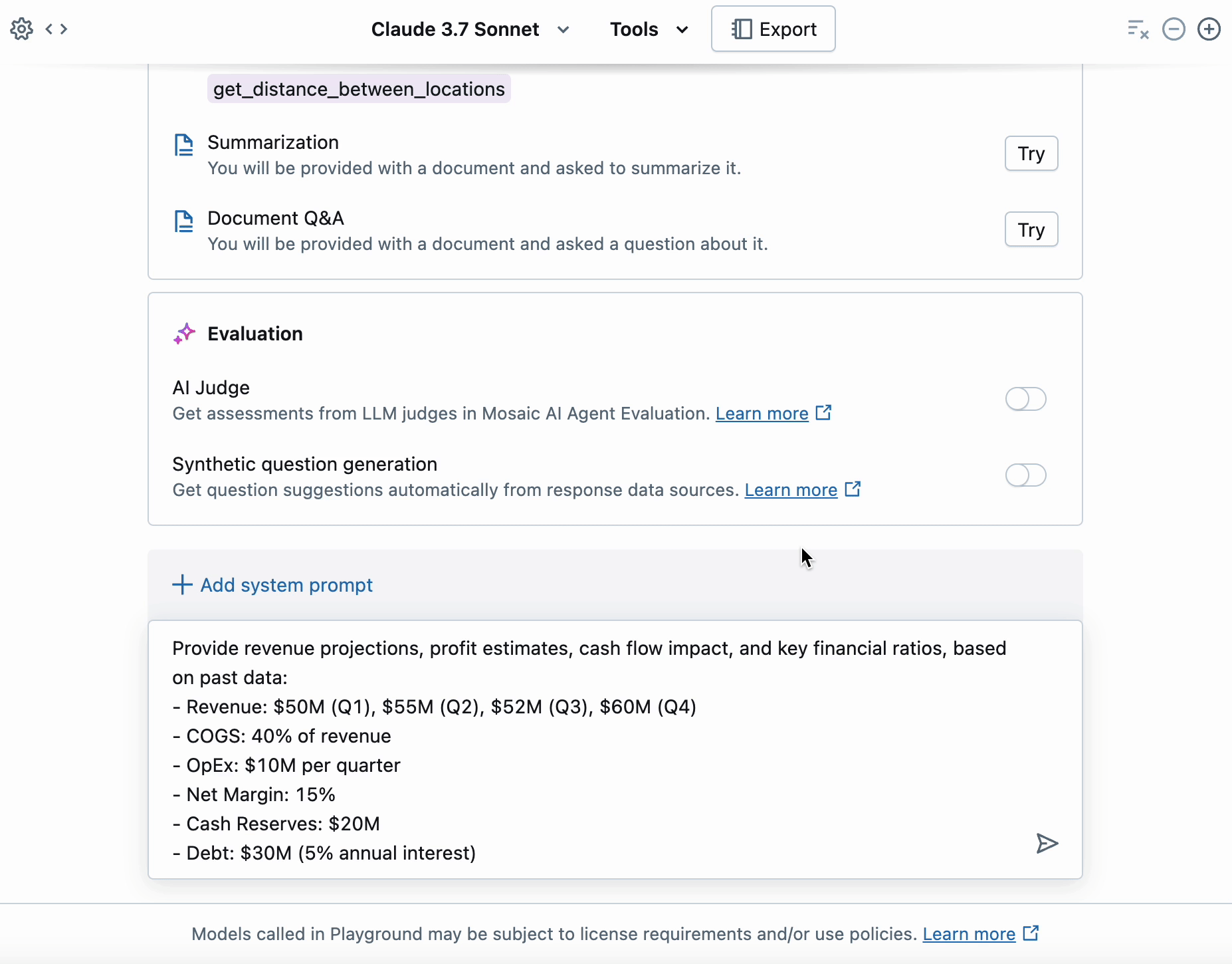Announcing Anthropic Claude 3.7 Sonnet is natively available in Databricks
Securely build intelligent, domain-specific AI agents with Claude and Mosaic AI

Summary
- Claude 3.7 Sonnet is now natively available in Databricks across AWS, Azure, and GCP—offering secure, governed access to Anthropic’s most advanced model for reasoning, planning, and agentic tasks.
- Build smarter, domain-specific AI agents by combining Claude’s hybrid reasoning with Mosaic AI's tool integrations, unified API, and evaluation framework.
- Run Claude directly in SQL or across Databricks tools like Notebooks and Workflows to power intelligent, context-aware applications at scale—no infrastructure required.
We’re excited to announce that Anthropic Claude 3.7 Sonnet is now natively available in Databricks across AWS, Azure, and GCP. For the first time, you can securely access Claude’s advanced reasoning, planning, and agentic capabilities directly within Databricks. By combining Claude with the Databricks Data Intelligence Platform, enterprises can build domain-specific AI agents on their unique data—with full governance and observability across the entire data and AI lifecycle.
Meet Claude 3.7 Sonnet
Claude 3.7 Sonnet is Anthropic’s most advanced AI model to date, delivering best-in-class performance on complex tasks like agentic reasoning and multi-step planning, multi-turn conversations with long context and deep document and data understanding. It’s the first hybrid reasoning model—allowing developers to control its “thinking time” and inspect its reasoning steps, a key capability for building transparent, trustworthy AI agents. Benchmarks have demonstrated Claude's leadership in complex multi-step agentic systems and coding capabilities, making it ideal for operational agents in enterprise environments.

As the first hybrid reasoning model on the market, users can control how long the model can think for, and visibility inspect the model’s reasoning.
Use Claude 3.7 Sonnet securely in Databricks
Databricks users can now access Claude 3.7 natively and securely across AWS, Azure, and GCP—no setup required. Mosaic AI Gateway automatically governs usage with built-in logging, guardrails, and PII detection, so teams can confidently use Claude 3.7 Sonnet like any other model on Databricks.

Claude + Databricks = Smarter Data Intelligence Apps
This launch marks the beginning of a strategic partnership between Anthropic and Databricks. Together, we’re enabling organizations to build domain-specific AI agents that can reason deeply over their proprietary data. Here are two key ways to get started:
Easily Build High-Quality Agents
Claude’s advanced reasoning, paired with Mosaic AI, provides everything teams need to develop, deploy, and scale enterprise-grade agents.
- Access Claude with a Unified API: Use Claude alongside other top-tier models via a single OpenAI-compatible API. Simplify experimentation and switch models with no extra integration work.
- Integrate Context-Aware Tools: Combine Claude’s deep reasoning with Unity Catalog-governed tools. Retrieve unstructured data, invoke external APIs, or run custom Python logic to build agents that are truly context-aware.
- Evaluate Agents at Scale: Evaluate and continuously improve agents with custom metrics, tracking, and collaboration tools from pilot to production.
Run Claude Directly in SQL
Claude's capabilities also make it ideal for advanced batch inference tasks that require high-quality reasoning.
- Easy Batch Processing: Use SQL to run inference at scale on your governed data—without ever moving it.
- Fully Serverless: No infrastructure to manage. Databricks handles scaling, retries, and orchestration behind the scenes.
- Native Databricks Integration: Use Claude anywhere in the Databricks ecosystem—Notebooks, Dashboards, DBSQL, Workflows—bringing generative intelligence to every part of your organization.
Next Steps
- Try Claude 3.7 Sonnet in Mosaic AI Playground and Model Serving
- Check out the virtual event featuring Ali Ghodsi (Databricks CEO) and Dario Amodei (Anthropic CEO) who talk more about the partnership
- Read our Compact Guide to AI Agents
Never miss a Databricks post
What's next?

Product
November 21, 2024/3 min read
